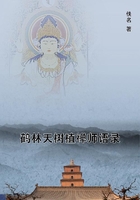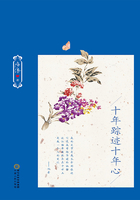But it would be idle to deny that the ingredient which, more than its humour, or its wisdom, or the fertility of invention or knowledge of human nature it displays, has insured its success with the multitude, is the vein of farce that runs through it. It was the attack upon the sheep, the battle with the wine-skins, Mambrino's helmet, the balsam of Fierabras, Don Quixote knocked over by the sails of the windmill, Sancho tossed in the blanket, the mishaps and misadventures of master and man, that were originally the great attraction, and perhaps are so still to some extent with the majority of readers. It is plain that "Don Quixote" was generally regarded at first, and indeed in Spain for a long time, as little more than a queer droll book, full of laughable incidents and absurd situations, very amusing, but not entitled to much consideration or care. All the editions printed in Spain from 1637 to 1771, when the famous printer Ibarra took it up, were mere trade editions, badly and carelessly printed on vile paper and got up in the style of chap-books intended only for popular use, with, in most instances, uncouth illustrations and clap-trap additions by the publisher.
To England belongs the credit of having been the first country to recognise the right of "Don Quixote" to better treatment than this.
The London edition of 1738, commonly called Lord Carteret's from having been suggested by him, was not a mere edition de luxe. It produced "Don Quixote" in becoming form as regards paper and type, and embellished with plates which, if not particularly happy as illustrations, were at least well intentioned and well executed, but it also aimed at correctness of text, a matter to which nobody except the editors of the Valencia and Brussels editions had given even a passing thought; and for a first attempt it was fairly successful, for though some of its emendations are inadmissible, a good many of them have been adopted by all subsequent editors.
The zeal of publishers, editors, and annotators brought about a remarkable change of sentiment with regard to "Don Quixote." A vast number of its admirers began to grow ashamed of laughing over it. It became almost a crime to treat it as a humorous book. The humour was not entirely denied, but, according to the new view, it was rated as an altogether secondary quality, a mere accessory, nothing more than the stalking-horse under the presentation of which Cervantes shot his philosophy or his satire, or whatever it was he meant to shoot; for on this point opinions varied. All were agreed, however, that the object he aimed at was not the books of chivalry. He said emphatically in the preface to the First Part and in the last sentence of the Second, that he had no other object in view than to discredit these books, and this, to advanced criticism, made it clear that his object must have been something else.
One theory was that the book was a kind of allegory, setting forth the eternal struggle between the ideal and the real, between the spirit of poetry and the spirit of prose; and perhaps German philosophy never evolved a more ungainly or unlikely camel out of the depths of its inner consciousness. Something of the antagonism, no doubt, is to be found in "Don Quixote," because it is to be found everywhere in life, and Cervantes drew from life. It is difficult to imagine a community in which the never-ceasing game of cross-purposes between Sancho Panza and Don Quixote would not be recognized as true to nature. In the stone age, among the lake dwellers, among the cave men, there were Don Quixotes and Sancho Panzas; there must have been the troglodyte who never could see the facts before his eyes, and the troglodyte who could see nothing else. But to suppose Cervantes deliberately setting himself to expound any such idea in two stout quarto volumes is to suppose something not only very unlike the age in which he lived, but altogether unlike Cervantes himself, who would have been the first to laugh at an attempt of the sort made by anyone else.
The extraordinary influence of the romances of chivalry in his day is quite enough to account for the genesis of the book. Some idea of the prodigious development of this branch of literature in the sixteenth century may be obtained from the scrutiny of Chapter VII, if the reader bears in mind that only a portion of the romances belonging to by far the largest group are enumerated. As to its effect upon the nation, there is abundant evidence. From the time when the Amadises and Palmerins began to grow popular down to the very end of the century, there is a steady stream of invective, from men whose character and position lend weight to their words, against the romances of chivalry and the infatuation of their readers. Ridicule was the only besom to sweep away that dust.
That this was the task Cervantes set himself, and that he had ample provocation to urge him to it, will be sufficiently clear to those who look into the evidence; as it will be also that it was not chivalry itself that he attacked and swept away. Of all the absurdities that, thanks to poetry, will be repeated to the end of time, there is no greater one than saying that "Cervantes smiled Spain's chivalry away." In the first place there was no chivalry for him to smile away. Spain's chivalry had been dead for more than a century. Its work was done when Granada fell, and as chivalry was essentially republican in its nature, it could not live under the rule that Ferdinand substituted for the free institutions of mediaeval Spain. What he did smile away was not chivalry but a degrading mockery of it.















